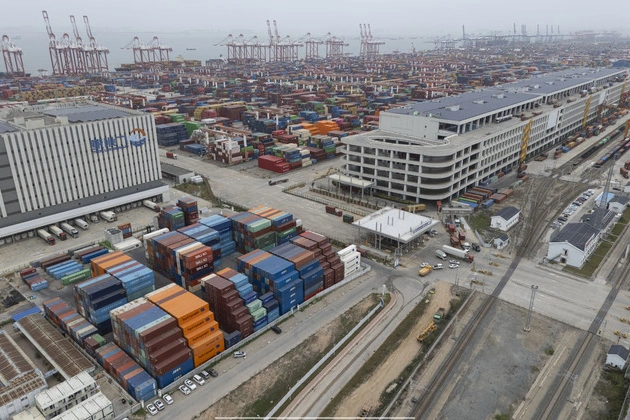
Introduction: Understanding the Impact of Trump’s Tariffs
President Donald Trump’s tariff agenda is reshaping the economic landscape, with significant implications for American consumers and the online shopping industry. The recent decision to remove a special exemption for low-value packages from China and Hong Kong has immediate consequences for online shoppers in the U.S. This article delves into the visible effects of these tariffs on everyday items and the broader economy.
Sen. Kevin Cramer (R-N.D.) highlighted the delicate balance that policymakers face regarding tariffs, expressing concerns about potential inflation and its repercussions. The political stakes are high, particularly as the administration aims to address issues like fentanyl smuggling through tariff measures.
The Political and Economic Landscape
The White House justifies the tariffs on low-value packages as a strategy to combat illicit drug trafficking, emphasizing the impact on American lives and industries. However, these policies also carry political risks, as evidenced by interactions with major retailers like Amazon.
Other online sellers, such as Shein, Temu, and Etsy, are already adjusting prices and product offerings in response to the tariffs. The broader implications of these trade policies extend to shipping companies like UPS, which now provide transparent cost breakdowns to customers.
Logistical Challenges and Consumer Impact
The implementation of tariffs on incoming packages presents logistical challenges for shippers and recipients alike. The burden of tariff payments falls on buyers unless businesses opt to cover these costs upfront. This shift in responsibility prompts sellers to reevaluate pricing strategies and communicate transparently with customers.
Congress’s historical rationale for the ‘de minimis’ exemption underscores the complexities of screening and collecting duties for low-value packages. The recent suspension and subsequent redesign of customs screening systems reflect the administrative hurdles associated with tariff enforcement.
Foreseeing Economic Consequences
Analysts predict that the escalating tariffs, particularly those targeting Chinese imports, will lead to price increases and supply shortages in the near future. Small businesses, lacking the resources to mitigate cost impacts, face heightened risks of failure as a result of these trade policies.
Treasury Secretary Scott Bessent acknowledges the transformative effect of current tariffs on Chinese goods, characterizing them as a de facto embargo due to prohibitive costs. The impending challenges for businesses reliant on Chinese products underscore the far-reaching implications of these trade decisions.
Conclusion: Navigating the Turbulent Trade Environment
As the trade landscape evolves under the Trump administration’s tariff agenda, businesses and consumers alike must adapt to changing economic realities. Transparency, strategic pricing, and proactive communication will be essential for navigating the challenges posed by tariff policies.
Stay informed about the latest developments in trade policies and their impacts on various industries to make informed decisions in this dynamic economic environment.











